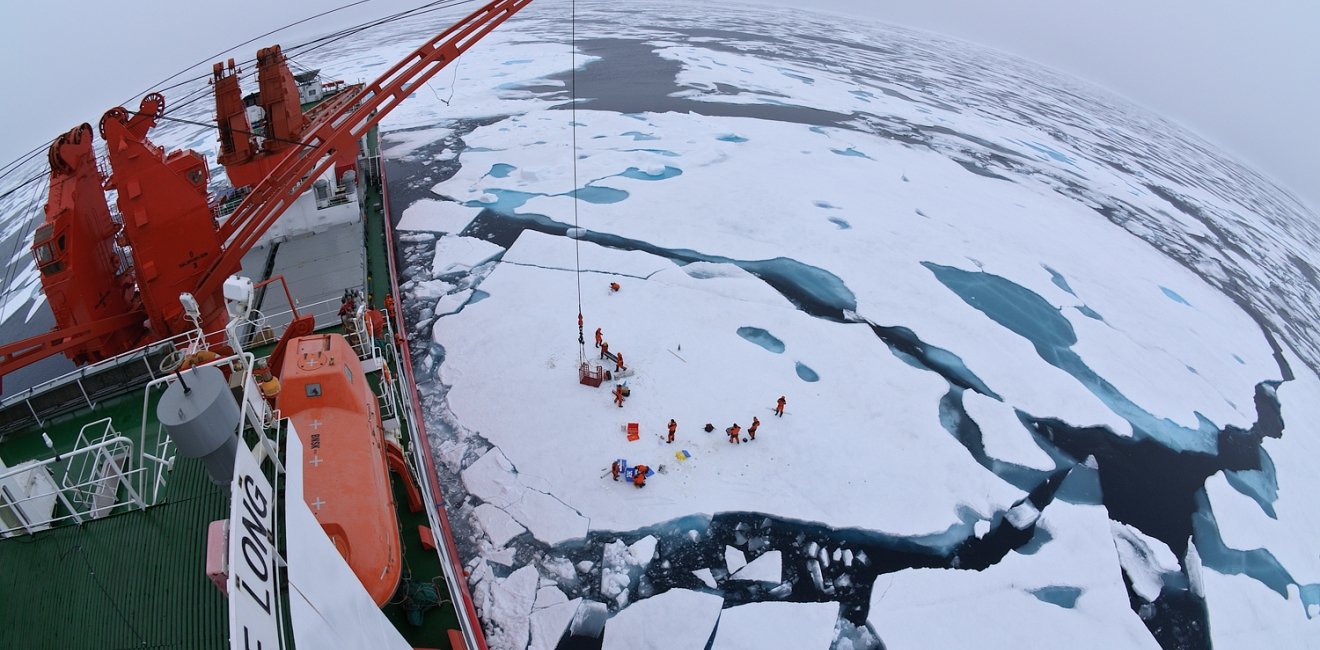The polar regions are an important zone for China’s emergence as a global power. China has long-term strategic interests in the Arctic and economic interests are part of the reason why China is drawn to be active there, though not the sole factor. There has been a lot of international debate and media coverage of China’s economic interests in the Arctic; however, relative to the government’s strategic agenda, China’s major companies have been slow to take up the opportunities available to them in the polar regions and are still relatively weak in polar equipment and expertise.
As a non-Arctic state, economic and scientific activities are the easiest, most legitimate way for China to establish a presence and active role in the Arctic region. The Chinese government would also like to achieve some economic benefits for its scientific investment in the polar regions. The Chinese government aims to take advantage of all the rights it is entitled to access in the Arctic, and it wants to enhance its right to speak on polar affairs more broadly – all of which it can do by expanding China’s scientific and economic presence in the polar regions.
The Chinese government has offered targeted assistance to Chinese commercial interests that wish to expand their businesses into the polar regions. Assistance includes, for example, providing shipping charts for the Arctic sea route and publicizing information about the right of Chinese citizens to engage in economic activities in Svalbard, a Norwegian archipelago that is one of the world’s northernmost inhabited areas. Chinese polar policymakers acknowledge that Chinese companies will put economics first when evaluating Arctic investment opportunities, but China’s polar program is helping with that process by facilitating due diligence through commissioning pertinent scientific research and promoting business opportunities. With such high-level official support, it can only be a matter of time before Chinese companies expand their operations in the Arctic on a big scale, just as they have into other strategic areas of the world identified by the Chinese government.
The commercial sector can be useful as an additional source of funding for Chinese polar science. There is considerable private involvement in polar affairs already, and Chinese polar officials would like more. Commercial interests are thoroughly entwined with China’s polar policymaking. The China Arctic and Antarctic Administration, a Beijing-based state agency responsible for coordinating China’s polar program, is currently sponsored by at least 27 companies, which provide products ranging from heavy trucks to cold-weather clothing.
China will pay market rates for Arctic natural resources and is a potential source of low-cost skilled labor, both of which make it attractive to business interests in Russia, Canada, and Greenland. For nations that will be affected by Arctic shipping, China is likely to be the main international user of the Arctic international routes due to China's dominance in global shipping and because it is the main market for Arctic resources. China can help fund and construct infrastructure, opening up a previously dormant region. The Chinese government is engaging diplomatically with the Arctic states—Iceland, Finland, semi-independent Greenland, Denmark, Norway, Russia, and Sweden, and most recently, the U.S. state of Alaska—and in doing so, has swiftly gained acceptance for China’s role as a legitimate actor in Arctic affairs. China is a member of every single Arctic and Arctic-related governance body it is entitled to join and has now established, or is in the process of establishing, favorable economic relations with all of these Arctic partners.
In many ways, the Arctic is a buyer’s market for China, but so far Chinese investors are moving relatively slowly to take up oil, gas, shipping, and infrastructure opportunities. Chinese companies will make investment decisions based primarily on the market, but government policy is scoping opportunities now and paving the way for favorable terms. China’s strategic interests in Arctic minerals are looking to the future, not the next few years, and companies are in the preparatory stage of exploration and exploitation. China’s fishing interests are likely to expand into the Arctic Ocean in the future, if only for geostrategic reasons. If commercially viable fish stocks develop as a result of an increasingly ice-free Arctic Ocean, Chinese fishing companies will have the right to fish in any region beyond the exclusive economic zones of Arctic coastal states. In 2015, the five Arctic littoral states agreed on a voluntary ban on the expansion of Arctic fishing, but China has not made any official statement on the agreement. China is one of the fastest-growing markets for outbound tourism in the world. So far, there is a relatively limited level of Chinese tourism into the Arctic, but we can expect to see a rapid expansion of Chinese visitors to Arctic states in the next five years.
At present, economic interests are not at the forefront of China’s Arctic priorities, which are being used more as a political tool to achieve other goals: establishing the physical foundations for China’s Arctic rights, shaping governance norms, and preparing to tap into resources there. China’s economic interests are sure to grow in importance and have an increasing impact on policymaking as new opportunities arise. As China continues to emerge as a global power, it is likely to take on a bigger role in the Arctic.
This article was originally published on CSIS' Reconnecting Asia
Author

Professor, University of Canterbury and Executive Editor of The Polar Journal

Kissinger Institute on China and the United States
The Kissinger Institute works to ensure that China policy serves American long-term interests and is founded in understanding of historical and cultural factors in bilateral relations and in accurate assessment of the aspirations of China’s government and people. Read more


Polar Institute
Since its inception in 2017, the Polar Institute has become a premier forum for discussion and policy analysis of Arctic and Antarctic issues, and is known in Washington, DC and elsewhere as the Arctic Public Square. The Institute holistically studies the central policy issues facing these regions—with an emphasis on Arctic governance, climate change, economic development, scientific research, security, and Indigenous communities—and communicates trusted analysis to policymakers and other stakeholders. Read more

Explore More
Browse Insights & Analysis
Fulbright Arctic Initiative IV Scholar at the Polar Institute

Trump 2.0’s Arctic Opportunity: Thawing Frozen Dialogue


